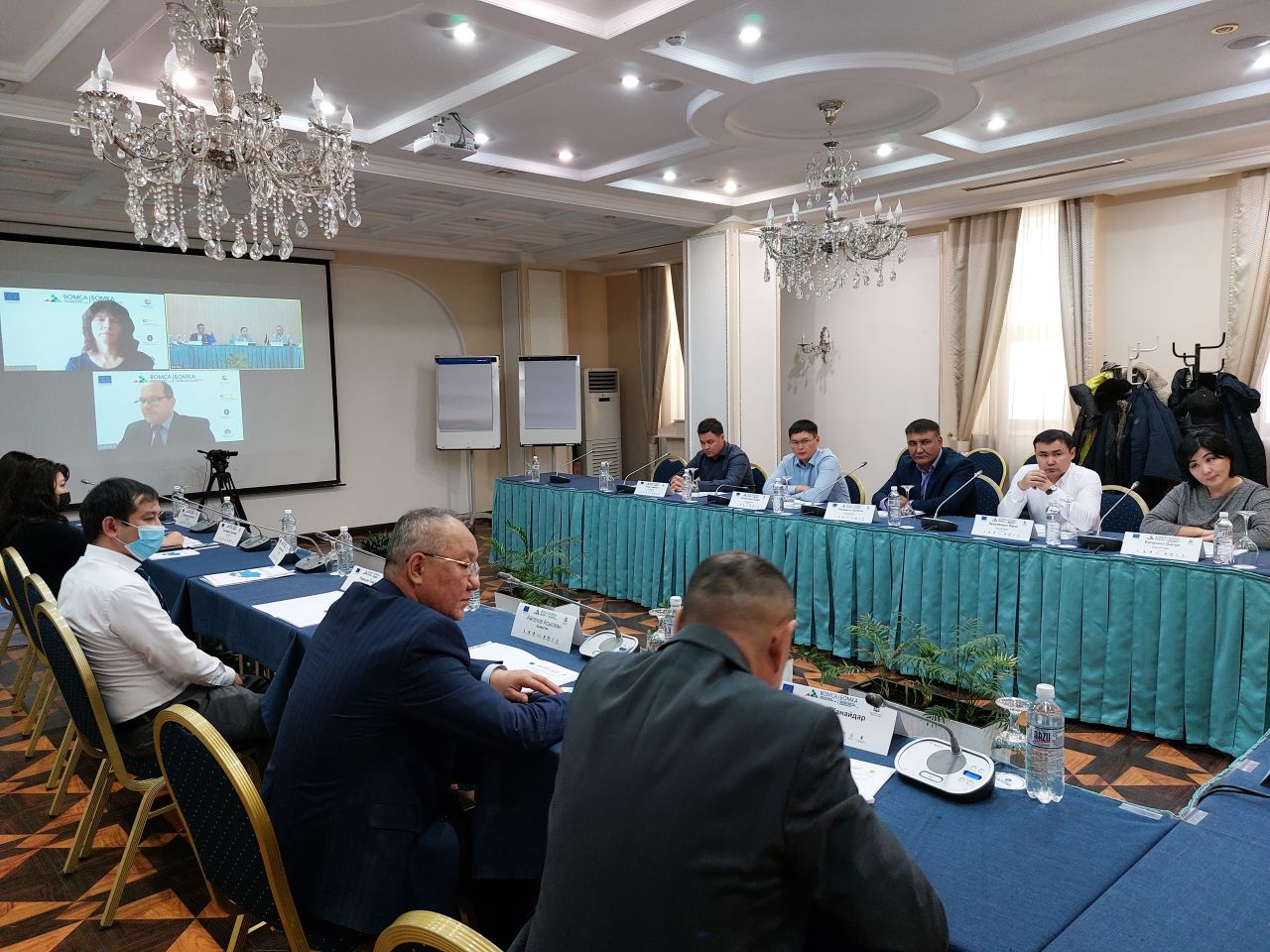The Border Management Programme in Central Asia (BOMCA) provided technical assistance to an analysis of the country’s customs legislation in transit areas during a meeting held from November 24-26, 2021. The meeting gathered experts from EU member states and Kazakh authorities on the development of a national transit declaration/control system. This event was designed to help the Kazakh customs administration to review its existing national transit systems, apply the Transport Internationaux Routier (TIR) Convention, and identify gaps in legislation. It will also analyze relevant administrative instructions on transit regimes and develop recommendations for further improvement.
Based on UNECE information, the customs convention on the International Transport of Goods under Cover of TIR Carnets (TIR Convention, 1975) is one of the most successful international transport conventions. So far, it is the only universal customs transit system in existence and has 77 Contracting Parties, including the European Union.
To facilitate and accelerate customs controls, risk analysis and guarantee control, there is a need for a computerised transit procedure by making transit data available to customs services in a digital form, as well as by ensuring electronic exchange of information between customs authorities and economic operators. Conformity between the country’s legal frameworks and international legislative precedents, such as the TIR convention, the ATA convention and World Customs Organisation (WCO) standards, is essential.
One of the most important measures is the introduction of electronic exchanges of information between the various customs authorities of Central Asia to enhance cooperation between the countries in the international movement of goods, rapid border crossings and smooth customs controls. Consistency in legislative acts among the involved countries is a key step in ensuring the coordinated digitalisation and automation of customs processes.
Upon completion of BOMCA’s technical assistance mission, experts will recommend concrete actions based on the findings and inconsistencies found in a gap analysis of relevant primary/secondary legislative acts and administrative instructions to transit policies applied in Kazakhstan.

